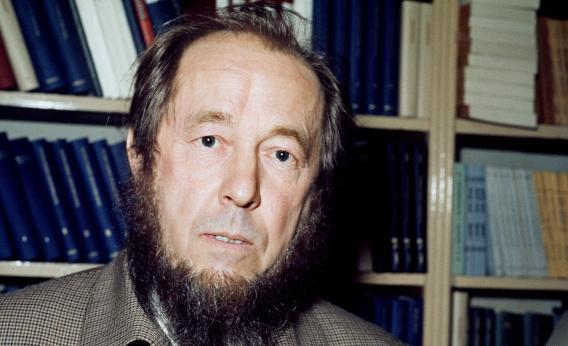The British prisoners’ rights group Reprieve has issued a statement accusing authorities at Guantánamo Bay of blocking the delivery of Alexander Solzhenitsyn’s Soviet-era classic The Gulag Archipelago:
The legal team for Shaker Aamer, a British resident who has been detained in Guantanamo without charge or trial for 11 years, attempted to deliver a copy of The Gulag Archipelago by Alexander Solzhenitsyn during a recent visit.
However, Mr Aamer has now told his lawyers that he never received the book. […]
Mr Aamer’s lawyers, from human rights charity Reprieve, often bring him books during visits—he has previously described George Orwell’s1984 as one of his favourite reads. However, Guantanamo authorities have the ability to ban any book from the prison.
Aamer, a 44-year-old originally from Saudi Arabia and the last British resident left at the camp, has been held at Guantánamo since 2002, though he was cleared for release in 2007. According to a 2006 New York Times article, he’s known around the camp as “the professor” due to his eloquence and extensive reading. (He’s also the subject of a recent P.J. Harvey song.)
The Gitmo library has been the subject of continual public fascination for years. In 2010 Time reported that “the Harry Potter series has been one the most popular titles among the 18,000 books, magazines, DVDs and newspapers on offer from the prison library.” In 2012 librarians told the Miami Herald that DVDs of The Fresh Prince of Bel-Air were flying off the shelves. More recently a congressional delegation reported that the 50 Shades of Grey series is a hit with the detainees.
Last August author John Grisham wrote an outraged editorial in the New York Times after learning that some of his legal thrillers were not being allowed into Guantánamo because of “impermissible content.” A Pentagon spokesman later blamed it on “a misunderstanding by some junior staff of what constitutes permitted reading materials” and the books have now apparently been allowed in.
For obvious reasons Solzhenitsyn’s epic investigation of the communist-era prison camp system—a book banned for decades in the Soviet Union—carries a bit more symbolic weight. Let’s hope it’s another “misunderstanding.”
